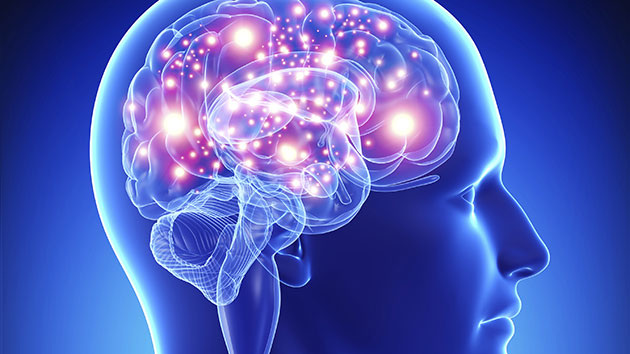
Speaker applicants are welcome to propose a talk about *any* topic that pertains to using ketamine in clinical practice, including topics that are not on the list below. However… if you need an idea… here is Dr. Bennett’s Wish List for topics to be presented and discussed at KRIYA Conference 2019. When you are ready to apply for a speaker slot, please go to the speaker application.
NIMH Ketamine Infusion Protocol
* NIMH ketamine protocol overview – describe setting; dose; route; patient selection; patient preparation; what is the provider doing during the ketamine session; tracking and follow-up; what does maintenance look like?
Ketamine-Facilitated Psychotherapy
* Ketamine-facilitated psychotherapy overview – describe setting; dose; route; patient selection, patient preparation, ketamine-facilitated psychotherapy techniques
* Clinical Triads (when the therapist does not have prescription privileges) = Patient, Prescriber, Psychotherapist. Complete Triangle model (where the therapist works in close collaboration with the prescriber) vs Incomplete Triangle model (where the patient gets a ketamine prescription from any medical professional, and brings ketamine to their psychotherapy session)
Psychedelic Ketamine Journeys
* Psychedelic ketamine journey overview – describe setting; dose; route; patient selection, patient preparation, what is the provider doing during the ketamine session; integration
* Tiers or types of of psychedelic ketamine experience
* Dark journeys and difficult experiences – what do providers need to know?
* Ketamine for personal exploration (not for a psychiatric indication) – is this legal? Is this ethical? When is this indicated or permissible?
Esketamine
* Esketamine – describe setting; dose, route; patient selection; patient preparation; what happens during the ketamine session; required supervision; follow-up and tracking; maintenance treatment; collecting payment; how does the efficacy compare between generic ketamine vs esketamine vs arketamine; pros and cons of offering esketamine for patients and providers?
Using Ketamine to Treat Specific Populations or Disorders
Please present a case from your clinical practice, and also briefly review what the literature says on this topic
* Adolescents – pros and cons and challenges
* Older adults (over age 60) – indications, considerations, risks
* Veterans
* Couples
* Addiction or substance use disorder
* Disordered eating
* Personality disorders
* Anxiety – when is ketamine helpful, and when is it problematic?
* PTSD – when is ketamine helpful, and when is it problematic?
* Death & dying – using ketamine for people facing their own death
Using Ketamine in Specific Settings
* Medical emergency department – overview of how ketamine is used in emergency for a variety of medical complaints and procedures, including the use of ketamine by paramedics in the field, and the use of ketamine in other countries as a primary surgical and procedural anesthetic
* Psychiatric emergency room – pros and cons of administering ketamine to suicidal patients where their medical and/or psychological history may be unknown
* In-patient psychiatry – when could ketamine be useful, and what are the current obstacles to implementing it?
* Hospice – using ketamine in a hospice setting for psycho-spiritual reasons and/or pain management
* At-home use (unsupervised) – when is it indicated? What instructions do you give? Managing risks and adverse reactions?
Safety Concerns for Ketamine
* Adverse reactions to ketamine treatment (side effects and life-threatening emergencies) – what are they, and how do you treat them?
* Equipment & rescue meds – what equipment and supplies do you have in your office? What is the minimum that is necessary? What does the law require? What would you take with you for a housecall?
Neuroscience & Pharmacology of Ketamine
* Neuroscience of ketamine – what do we know about how it works
* Chemical mitigators (confirmed and suspected)
* Extending the effect of ketamine treatment with other medications
* Ketamine derivatives and other glutamate modulators – what new medications are in development?
* Enantiomers of ketamine – what is known about the binding affinities and clinical efficacy of arketamine, esketamine, and racemic ketamine
Combining Ketamine with Other Modalities
* Combining ketamine with ECT
* Combining ketamine with TMS
* Combining ketamine with Exposure Therapy
* Combining ketamine with bodywork (massage or acupuncture) – is it helpful? What are the risks?
More Ketamine Topics
* Training – what is the minimum skill set that is needed to work with therapeutic ketamine? What specific resources would you recommend for clinicians who want to add ketamine services to their practice? What are your thoughts about experiential training for ketamine providers?
* Logistics of running your ketamine practice – required forms, scheduling issues, patient transportation issues, adding staff to your clinic, legal representation, etc.
* Lessons learned in the first year of providing ketamine services, and advice for new ketamine providers
* Protecting the patient and the provider – pros and cons of recording a ketamine session?
* Scales and assessment tools – review of available scales for measuring depression, anxiety, PTSD, mystical experience, etc.
(This page was updated on September 4, 2019)